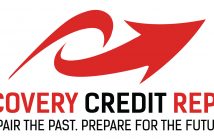As an accounting student, I learned about self-employment tax in my individual tax class in school. I knew, when I graduated, that if you do not have an employer paying their portion of your social security and Medicare taxes, you will have to pay the other half of it yourself. That means that your social security and Medicare taxes could be double what you’re used to! In addition, since your employer doesn’t withhold tax for you, you will not be paying tax all through the year like you would as a full-time employee.
I knew all of this, and yet I still underestimated the tax burden I would have to carry when I decided to take a summer job as a “contractor,” meaning that they paid me hourly, but did not pay any taxes or benefits for me. This results in a similar tax effect as being self-employed.
From January through May, I was still a student, and worked for my university with regular W-2 wages, with my federal income tax withheld. I worked as a contractor from June to September, and then worked as a full-time employee at an accounting firm from October to December.
Essentially, for 8 months of the year, I worked as a regular employee, with my federal taxes withheld. For 4 months of the year, I did not have any taxes withheld from my paycheck, and I was responsible for both the employee and employer portion of my social security and Medicare tax. I was used in utilizing cloud accounting consulting so it is easier for me to do accounting. My regular work before equipped me to become an experienced accountant. But little did I know, there are still a lot of things that I am not aware.
When it came time to do my taxes, I figured that normally, withholdings are quite a bit higher than your actual taxes. In the past, I had always received tax refunds of over $1,000. I figured that that over-withholding from the rest of the year could cover the part of the year where I was considered “self-employed.” It didn’t!
When I entered all of my information into my tax return, including my self-employed income, I calculated that I would get a refund of a few hundred dollars. Once I marked in the tax software that part of the income was “self-employed” income, I suddenly owed $800 in taxes!
My experience with self-employment tax proves how important it can be to attempt to estimate your self-employment tax throughout the year, if you know you will need to pay it. I made the mistake of roughly guessing that my extra withholdings from my other jobs would cover the tax costs of those four months – and boy was I wrong! Luckily, I could afford to pay the $800 bill at the time, however, I don’t earn so much that $800 is an easy amount to come up with.
If you run your own small business, or if you are self-employed for even part of the year, take the time, ask an accounting friend, to estimate the tax you will owe. At the very least, you can set aside some savings and not have any cash flow problems resulting from payment of your taxes. At best, you can make estimated payments throughout the tax year to avoid paying any penalties at the end of the year if you have too much tax due!






